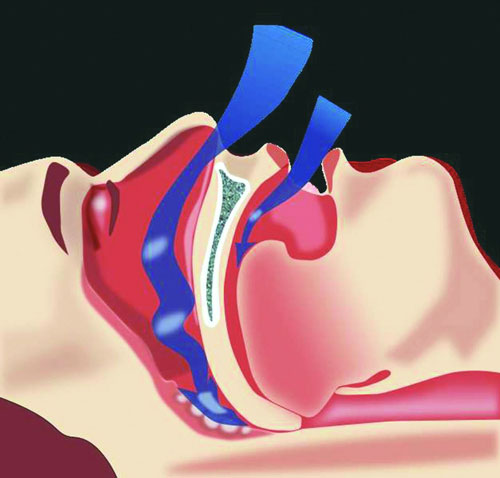IN a new study, researchers investigated inflammatory cytokines that are associated with both obstructive sleep apnea (OSA) and autoimmune diseases. They found that cytokine levels are abnormal in people with untreated OSA.
It is impossible to overstate the importance of a good night’s sleep. Getting the right amount of sleep can lower the risk of weight gain, reduce inflammation, improve productivity, and much more.
Many people struggle to get enough rest each night. For some, this is due to sleep disorders, such as insomnia and sleep apnea.
OSA was the focus of a new study, which appears in the journal Clinical Immunology. Researchers at the University of Georgia (UGA) in Athens looked at the connection between untreated OSA and autoimmune diseases.
According to the National Institutes of Health (NIH), sleep apnea occurs “when the upper airway becomes blocked repeatedly during sleep, reducing or completely stopping airflow.”
A person with sleep apnea may momentarily stop breathing multiple times per hour while sleeping.
Signs and symptoms of sleep apnea include:
• snoring
• daytime sleepiness
• gasping for breath while asleep
• sexual dysfunction
Various factors can contribute to a person developing OSA. These include obesity, enlarged tonsils, and heart or kidney failure.
EATING A MEDITERRANEAN DIET MAY REDUCE THE EFFECTS OF STRESS
A study has found that middle-aged monkeys fed a plant-based Mediterranean diet were more resilient to stress than those fed a Western diet containing a lot of animal protein, saturated fat, salt, and sugar.
According to a survey by the polling organization Gallup in 2019, people living in the United States reported some of the highest levels ofpsychological stress in the world.
Chronic stress not only increases a person’s risk of depression and anxiety but also their chances of developing diseases including obesity, type 2 diabetes, cardiovascular disease, stroke, and Alzheimer’s.
Reducing stress is not easy at the best of times, however, and it is even more difficult in the face of circumstances such as political turmoil and an ongoing pandemic.
The idea that simply changing our diets could improve how our bodies cope with stress may seem far-fetched.









